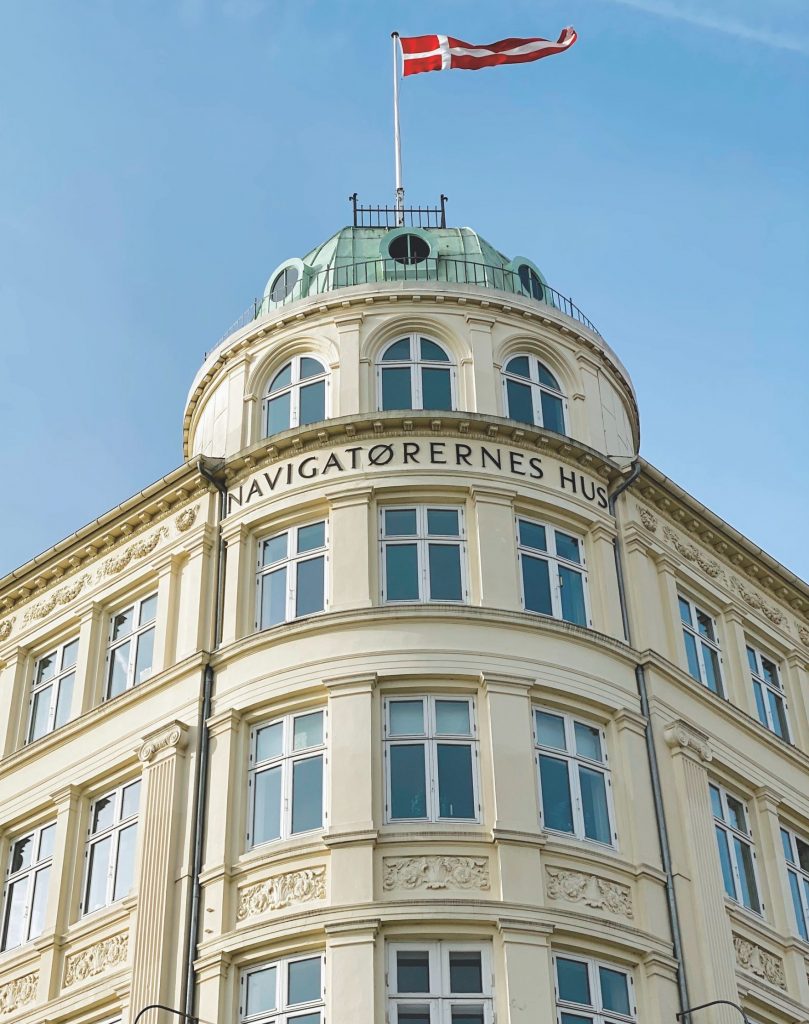Nowadays, studying abroad is a popular option among international students. Hundreds of students are on the quest to travel Abroad to start or continue their education. Some of these students choose to study in the United States, while others prefer to study in Europe. However, the most popular study abroad location is the United Kingdom, undoubtedly, UK universities attract students from all over the world. As for Europe, universities that has stolen the show is located in Denmark.

Denmark has a lot to offer students, from the capital city of Copenhagen to the windswept North Sea shores of Jutland. Denmark is well-known for its engineering, invention, and technological prowess, and it is one of the most educated countries in the world. Denmark’s design is renowned for its architecture, and it is a must-see for anybody interested in the creative area. If you want to study in Denmark, this site will tell you everything you need to know.
An Overview of Denmark
Denmark is a tiny yet densely populated Northern European country. According to the World Happiness Report, it is home to the world’s happiest people. Denmark boasts a high level of living as well as a robust welfare system. The economy of the country is mainly reliant on exports and trading with other European countries. Denmark is also well-known for its creative approaches to addressing societal issues such as climate change, healthcare, and education. Copenhagen, Denmark’s capital, is home to numerous museums, theatres, and galleries that highlight Danish culture and ingenuity.
Denmark has a population of 5.7 million people, with a median age of 40. The official language of the country is Danish, which evolved from the Old Norse language spoken by Vikings during the Viking Age (800-1066 AD). Denmark is an ideal option to study abroad due to its strong education system and high-quality universities. Also, there are several chances for students to participate in international projects or internships.
Reasons You Should Study Abroad in Denmark
Here are a few reasons you should study in Denmark:
- Denmark provides free tuition to all of its citizens as well as international students who have been given residence permits or permanent residency in Denmark.
- Denmark is also a multicultural culture, with many international students visiting the country each year to study. As of 2018, about 30,000 overseas students were enrolled at Danish universities and colleges.
- Denmark’s culture is warm and accommodating to foreigners, making it simple for international students to integrate into society and establish friends from all over the world.
- According to the UN World Happiness Report 2017, Denmark has the world’s happiest people.
- The World Economic Forum has named Denmark the best country in the world for gender equality.
- Denmark has a lot to offer regarding educational opportunities. The universities are well-known and have a good reputation. Denmark’s universities are among the best in the world.
Denmark Education System
Denmark boasts of one of the world’s greatest education systems. It is well-known for its outstanding academic standards and inexpensive tuition fees. Denmark’s education system is separated into two parts: formal education and informal education. Tuition expenses are free in Denmark for students who attend a public school or university and are Danish citizens or EU/EEA citizens with a one-year residence visa. There are also no tuition fees for adult education programs in Denmark if you hold a one-year residency permit or have lived in Denmark for more than four years without interruption.
Bachelor’s degree
The duration of a professional bachelor’s degree (professionsbachelorgrad) is three to four years (180-240 ECTS), and it must contain at least six months of internship (30 ECTS). The typical length of a standard bachelor’s degree is three years (180 ECTS). The programs involve a final project and are research-based. Universities provide education in all scientific disciplines.
The duration of the bachelor of arts (bachelorgradikunst) is three years (180 ECTS), and four years for theater and film (240 ECTS). Entrance exams are used to determine admission. The programmes are based on both artistic and scientific study. Studies in the visual arts are available, including those in music, design, and architecture.
Master’s degree
After two (or three in rare cases) years of study, a master’s degree (masteruddannelse) is granted (60 ECTS and 90 ECTS, respectively). Some master’s degrees are longer, such the three-year (180 ECTS) medical program.
Some master’s programs are lengthier than others, such as the 2.5 years of veterinary medicine and the 3 years (180 ECTS) of medicine (150 ECTS). Only universities and colleges with higher education programs in the arts and architecture provide the Master’s degree (Candidatus).
Compulsory subjects, electives, and thematic courses make up the curriculum. Problem-based learning is the primary teaching strategy. Students participate in group projects and individual work, attend seminars and lectures, complete theoretical and practical assignments, complete internships, and take part in exchange programs. Master’s students complete a dissertation at the conclusion of their studies, which they may work on individually or in groups for 6 to 9 months.
To be admitted, you typically need:
Bachelor’s degree and marks on transcript; Danish and English language certificates (IELTS 6.5/TOEFL 83)Danish (Studieprven in Dansk Som Andetsprog/Danskprve 2);
resume (for several programs, experience of at least two years is required);
Letters of recommendation;
The information must be made clear on the official websites because each university presents its own standards.
Phd
Doctoral studies (PhD), which typically span three years, come in two varieties:
Industrial doctorate; research doctorate.
The latter is a project that is relevant to the interests of the business. The student is employed by the business at the same time that they are both enrolled in school. The system was created to foster collaboration between businesses and academic institutions and to advance R&D in Danish business.
Taught courses and independent research make up the 180 ECTS required for PhD programs.The curriculum and research project are developed by the student and the academic advisor within three months, which are then reviewed and approved by the institution. There should be six-month-long courses on the research topic in the curriculum. Additionally, PhD candidates impart knowledge and/or communicate research findings (dissertation) through publications and presentations.
Danish universities frequently send students abroad or to industry in order to do diverse, ground-breaking research. Doctoral candidates present their dissertation defenses not just to alumni but also to overseas educators and industry professionals.
Applications for PhD programs are submitted through project announcements on university websites.
Typically, applicants choose an established study topic or provide original research proposals. The curriculum and research project are developed by the student and the academic advisor within three months, which are then reviewed and approved by the institution. Every university has its own set of requirements for applicants, but the general requirements goes thus;
A two-year master’s degree in the same or a similar discipline, as well as a transcript. Of course, programs that accept applicants with a bachelor’s degree exist, but in this instance, the course of study will take four years;
IELTS 6.5 or TOEFL 83 in English or Danish (Studieprven I dansk som andetsprog or Danskprve 2), a letter of motivation, letters of recommendation, a research plan, and an interview.

How Much Does it Cost to Study In Denmark?
It is critical to understand that the cost of living in Denmark is higher than that of other European countries. But best believe that Denmark is a great country to live in. As a result, tuition for studying in Denmark is also greater. In Denmark, the average annual tuition fee is $14,000. The cost of living and tuition fees vary by university and degree, but the country provides a high-quality education.
What are the Requirements to Study in Denmark?
Students must meet the general conditions provided by the Danish Ministry of Education to study in Denmark. These prerequisites are as follows:
- You must be at least 18 years old to apply.
- Secondary education or an equivalent is required.
- Test Dansk 2 (the Danish language test) must have been passed (or Test Dansk 3).
- Maintain your health.
- To study in Denmark, you must have a valid passport and visa.
Best Institutions in Denmark
Because Danish universities offer very high-quality education, many students find the system to be very challenging when they first enroll. Denmark’s universities are renowned for their excellent academic standards and vibrant learning environments. The problem-based learning techniques used by Danish institutions push students to come up with their own ideas and develop inventive thinking. Not only does Dannish universities offer quality education, but the majority of US universities are more expensive than the universities in Denmark.
Denmark’s universities for study are as follows:
1. Aarhus University
Aarhus University is a Danish public research university that was formed in 1928. Aarhus is Denmark’s second-oldest university, the university has a huge student body, with over 36,000 full-time and 6,000 part-time students from over 140 different nationalities. The primary language of instruction is Danish; however numerous international master’s programs are taught in English. The institution has received recognition for its student-centred approach to education; in 2006, it received European Quality Improvement System (EQUIS) accreditation, and in 2011, it received (EFMD) Quality Improvement System (EQUIS) accreditation.
2. Roskilde University
Roskilde University is a Danish university that was established in 1971. According to the QS World Rankings, it is one of the best universities in Denmark and one of the top 100 in Europe. Roskilde University has around 20,000 students enrolled at any given moment and provides degrees in both Danish and English. The institution confers bachelor’s, master’s, and doctoral degrees in a broad range of social sciences, humanities, and natural sciences fields.
3. Technical University of Denmark
The Technical University of Denmark is a Copenhagen-based research university. The institution was established in 1829 with the intention of training engineers. The Technical University of Denmark has a student body of about 20,000 people. Engineering, natural sciences, social sciences, humanities, and health sciences are all available at the institution. It also provides PhD students with research-based educational programs, as well as postgraduate courses for professionals, and executives. The institution also offers a vibrant student life, with over 500 clubs and organisations to choose from.
4. University of Copenhagen
The University of Copenhagen is a research-intensive institution. It is Denmark’s largest research institution, with the highest number of PhDs per population. The University’s history stretches back to 1479 as a cathedral school before becoming an academy and, eventually, a university on November 11, 1829, under the name “Royal Academy.” The University is divided into three faculties, with 12 departments, as well as other institutions that research both at the Danish and worldwide levels.
5. Copenhagen Business School
Copenhagen Business School is a global business school with campuses in Copenhagen and Frederiksberg, Denmark. Around 16,000 students from over 100 countries attend the institution, which provides a variety of BBA, MBA, and PhD programs. In 2014, the Financial Times recognized Copenhagen Business School as one of Europe’s top business schools. It has also been named one of the top three European business schools for its MBA program by the Financial Times (Eduniversal).
6. University of Southern Denmark
The University of Southern Denmark is Denmark’s largest, with two campuses with a diverse curriculum ranging from humanities to the sciences. The Institution of Southern Denmark was formed in 1928 and is Denmark’s largest university. It has two campuses with a diverse curriculum ranging from the humanities to the sciences. There are around 40,000 students and 6,000 employees at the university (full-time equivalents).
7. Aalborg University
Aalborg University is a Danish university located in Aalborg, Denmark. It was founded in 1974 and was given the title of the university in 1994. Engineering, science, humanities, social sciences, medicine, and law are among the academic degrees and courses available at the university. It also features a bachelor of arts program in collaboration with Aarhus University, which offers classes on the Aarhus campus.
8. Aarhus School of Architecture
Aarhus School of Architecture is a Danish architecture school that offers a Bachelor of Science degree. It was established in 1965 and is situated on the outskirts of the Danish city of Aarhus. It has over 1,000 students from all over the world. The school provides certified education with a focus on environmental sustainability and social responsibility. Henrik Valeur is the current dean, while Lise-Lotte Lindegaard Thomsen is the head of the architecture department.
9. The Royal Danish Academy of Fine Arts
The Royal Danish Academy of Fine Arts is a public higher education institution for the arts, design, and crafts. It offers bachelor’s, master’s, and doctoral degrees. The academy does not have its school buildings and instead provides its services in rented locations throughout Copenhagen. By royal decree, the Royal Danish Academy of Fine Arts was created in 1754 as the Royal Danish Painting School to teach painters in both Denmark and the other Nordic countries. It was renamed the Royal Danish Academy of Painting, Sculpture, and Architecture in 1766.
10. Aarhus School of Music
Aarhus School of Music is a Danish music conservatory. It was founded in 1965 by the Danish government and has been considered one of the greatest music schools in the world. The institution provides a wide range of courses at various levels and specializations. The school currently has over 350 students and about 40 teachers, making it one of the largest music schools in Denmark. The Royal Academy of Music in London, the Royal Danish Academy of Fine Arts, and the University College North Jutland have all collaborated with the Aarhus School of Music.
University Admissions Process in Denmark
In Denmark, the university admissions procedure is two-pronged: first, students must complete a high school diploma, and then they can apply to one of the universities. Denmark’s universities provide a wide range of degree options, from medical to engineering. There are no tuition costs in Denmark’s university system, which implies that all students are free to attend. Many higher education institutions in Denmark provide a variety of degrees, including medical and engineering; all students are free to attend these Danish universities.
Do Universities in Denmark offer Scholarships?
Universities in Denmark provide a variety of scholarships. Among the scholarships available at Danish universities are:
The Fulbright-Hays Program provides funding to graduate students and recent graduates to study or do research in the United States.
The Fulbright Program is a study-abroad award for undergraduate and graduate students.
The International Research Scholarship Program provides funding to international students who want to undertake research in Denmark.

Student Visa Requirements For Denmark
International students wishing to study in Denmark must get a student visa. Before they may enter the nation, students must apply for a visa. Before entering Denmark, international students who are not nationals of the European Union, the European Economic Area, or Switzerland must apply for a Danish student visa. For acquiring a student visa in Denmark, the Danish Immigration Service (DIS) has specified requirements:
- The candidate must be accepted at a Danish educational institution authorized to teach international students.
- The applicant must have adequate money to cover living expenses in Denmark while studying.
- The applicant must have enough funds to return home after completing their education in Denmark.
- When applying for a student visa, the candidate must not be older than 45 years old.
Post Study Opportunities in Denmark
In Denmark, there are numerous alternatives for post-graduate studies. As soon as you complete your studies, numerous opportunities await you. Internships, work placements, research programs, and language courses are among the many post-study options available in Denmark. What’s more, some of these postgraduate study opportunities are supported by Danish government agencies or universities.
Final Thoughts
Denmark is a beautiful nation with nice people, and it is simple to adapt to the local way of life.
We hope that the information in this article on studying in Denmark has encouraged you.
Best wishes with your studies!
